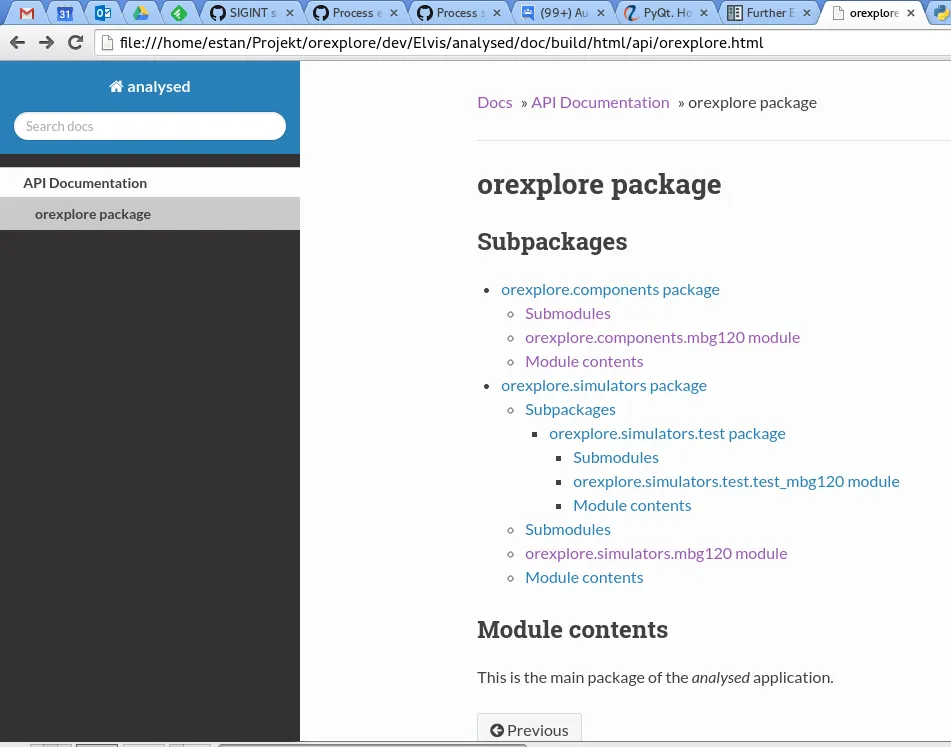我最近尝试使用Sphinx中的sphinx-apidoc,来帮助从Python项目的API生成Sphinx特定的reStructuredText。
然而,我得到的结果是:
- 摆脱所有“子模块”、“子包”和“模块内容”标题,并且 - 让我的
“子模块”和“子包”标题我认为是多余的,因为包/模块的常规标题是“xxx.yyy package”和“xxx.yyy.zzz module”。
我想要上述小例子的结构是
- orexplore.components包
- orexplore.components.mbg120模块
- orexplore.simulators包
- orexplore.simulators.test包
- orexplore.simulators.test.mbg120模块 - orexplore.simulators.mbg120模块
当我点击软件包时,第一件看到的就是软件包文档。
或许只需要这样:
然而,我得到的结果是:

- 摆脱所有“子模块”、“子包”和“模块内容”标题,并且 - 让我的
__init__.py文件中的docstring结果直接出现在包下面,这样如果我点击包名称,我看到的第一件事就是包文档。目前,该文档放置在每个包部分末尾略微奇怪的“模块内容”标题下。“子模块”和“子包”标题我认为是多余的,因为包/模块的常规标题是“xxx.yyy package”和“xxx.yyy.zzz module”。
我想要上述小例子的结构是
- orexplore.components包
- orexplore.components.mbg120模块
- orexplore.simulators包
- orexplore.simulators.test包
- orexplore.simulators.test.mbg120模块 - orexplore.simulators.mbg120模块
当我点击软件包时,第一件看到的就是软件包文档。
或许只需要这样:
- orexplore.components
- orexplore.components.mbg120
- orexplore.simulators
- orexplore.simulators.test
- orexplore.simulators.test.mbg120
- orexplore.simulators.test
- orexplore.simulators.mbg120